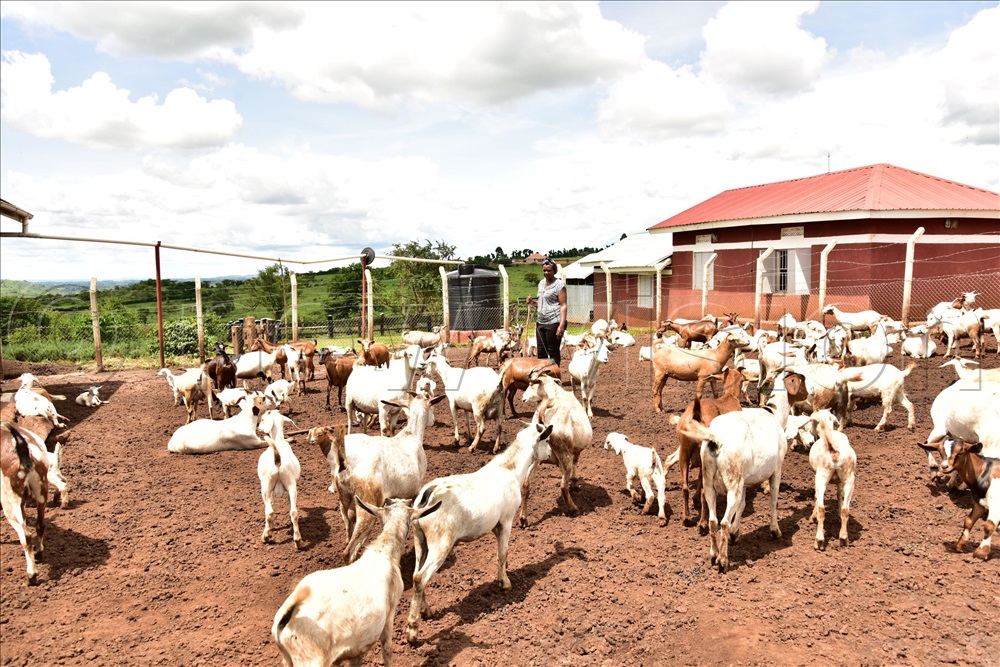By Umar Nsubuga
For effective breeding, you must gauge the time when you have enough feeds because proper nutrition is vital for the breeding process-from conception through the time when the kids are delivered.
Peter Mubiru, a veterinary doctor says it is important to make sure the does (female goats) are not fat before mating.
He says, put some billy goats (he-goats) among the does as a teaser two to three weeks before the planned mating period and see how they react.
According to Mubiru, one billy goat can service at least 35-40 does in about five days. So if you have a fewer number of does to service, then one is enough for them.

“The billy goats should be kept in a shade during hot periods because heat affects their sperm count. It is also important that they are only released to the does in the evenings,” he explains.
The best source of breeding stock is from good farmers, not the livestock markets. The true history of the parents can be learnt from your fellow farmers.
Mubiru says the females should not exceed five months, he also advises that the animal be examined critically.
“Experienced farmers can tell a good animal by looking at the way the animal moves. Make sure the animal is not blind, lame or deformed,” he says.
Phoebe Kagambe, a famous goat farmer says when the goat does deliver, the males can be castrated after two months to allow fattening.
At three months, the female kids should be separated into their own enclosure and a new male from outside the farm be introduced to avoid incest.
When closely related goats mate, they produce children of inferior size, which are very susceptible to disease. They are also weak and often develop abnormalities.
She says the goats should be given additional feeds including banana and tree leaves and other crop residues. Maize and grain bran, as well as clean drinking water, should be given at regular intervals.
“Give mineral supplements on advice from the local farm supply shop, and ensure that de-worming is carried out as advised by your local veterinary officer who should be sought for regular consultation,” Mubiru advises.





